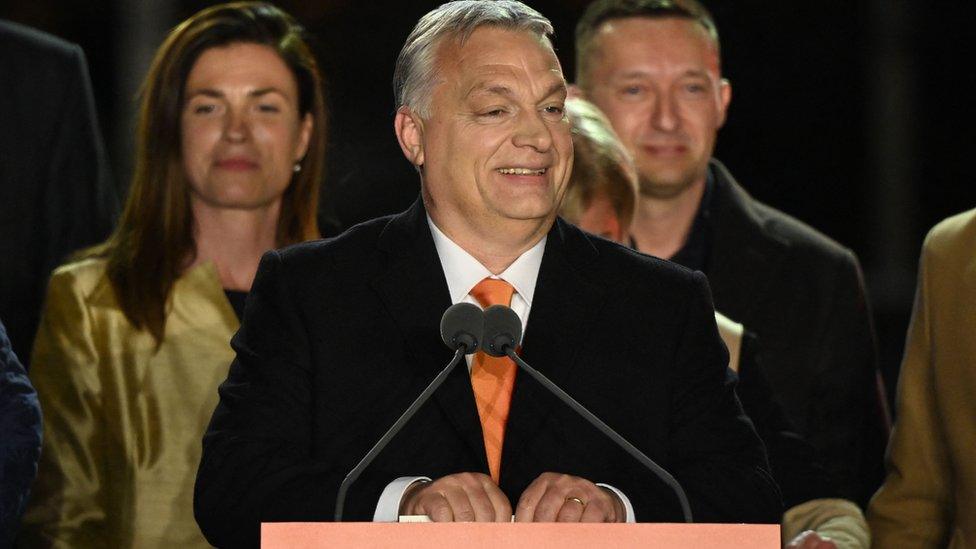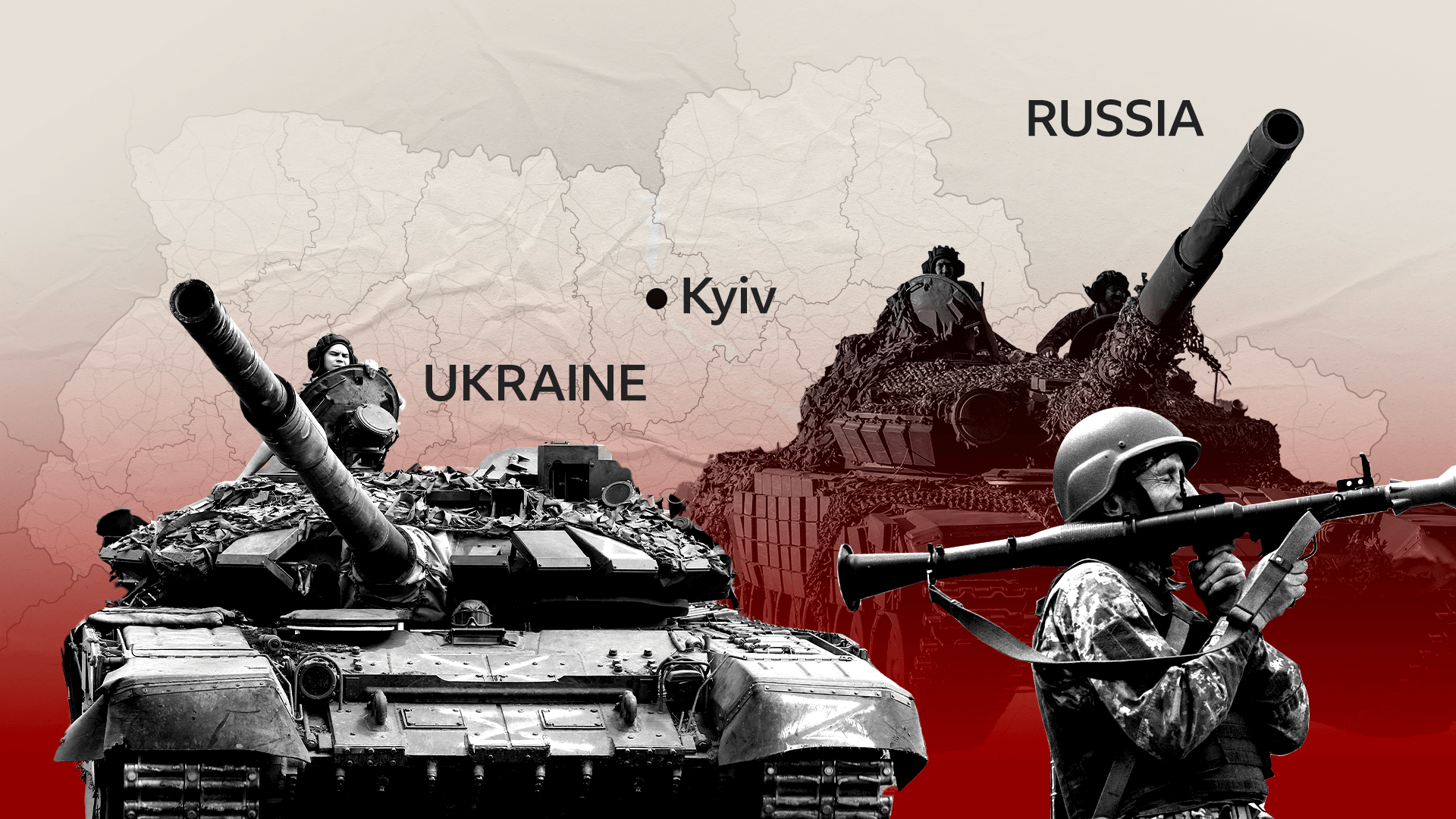Ukraine round-up: Villagers forced to live with the dead for days
- Published
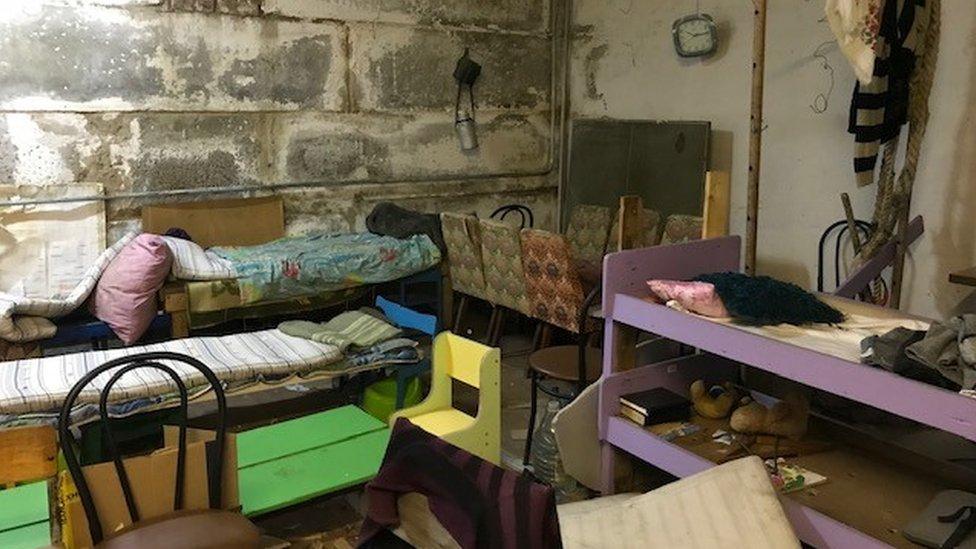
About 130 people spent four weeks in this basement near Chernihiv in northern Ukraine
Ukraine is preparing for a major Russian operation in the east of the country, now that Russian troops have withdrawn from the areas around the capital, Kyiv.
Foreign Minister Dmytro Kuleba said the battle for the Donbas region would remind the world of World War Two.
Mr Kuleba asked Nato countries to provide weapons to fight the Russians. The Western alliance's secretary general said Nato was ready to strengthen support, even though he did not give details on what weapons it would provide.
As more details emerge of atrocities in the areas once controlled by the Russians, the UN General Assembly voted to suspend Moscow from the Human Rights Council. The Kremlin described the vote as "illegal".
Here are some of the highlights of Thursday's developments:

Sharing space with the dead
On Day 43 of the Russian invasion of Ukraine, a BBC team visited the northern village of Yahidne, which was occupied by Russian soldiers for nearly a month.
When the Russians entered, they took men, women and children from their homes at gunpoint and held them in the basement of the local school for four weeks - around 130 people cramped into a room roughly 65 sq m (700 sq ft) in size.
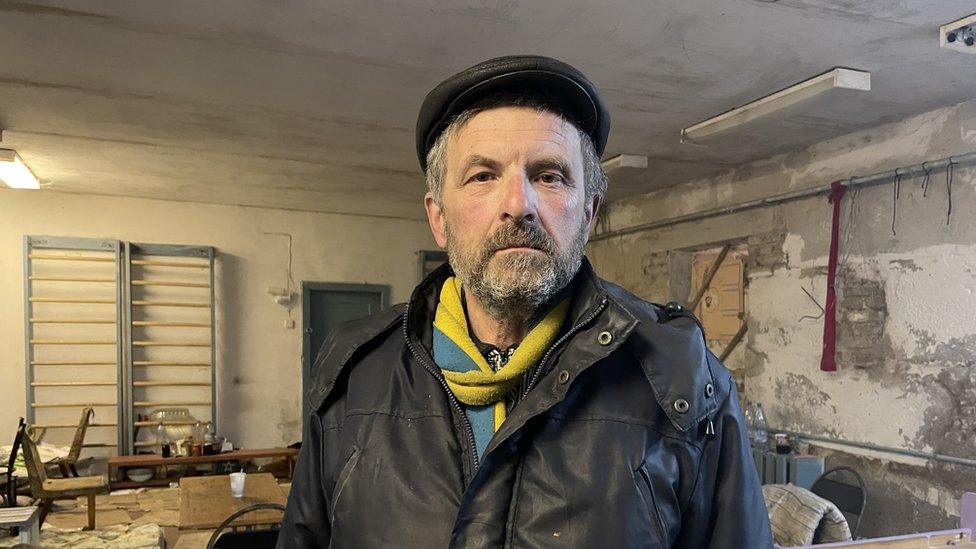
Mykola tied himself to a wall so he could sleep standing up
"This was my half a metre of space. I was sleeping standing up," says Mykola Klymchuk, who survived the ordeal. "I tied myself to the railing here with my scarf so I wouldn't fall over. I spent 25 nights like this."
Mykola said you couldn't move at all for fear of stepping on people.
When people died, the bodies couldn't immediately be removed. Russian soldiers would not allow it every day. And because of the constant fighting outside - mortar shelling, explosions and gunfire - it was dangerous as well.

Bucha murders: Russian troops discussed killings - report
Debunking Russian claims about Bucha killings
Russian troops were heard discussing killing civilians in the Ukrainian town of Bucha, in messages intercepted by German intelligence, German media say.
Der Spiegel magazine says some of the radio traffic tracked by the BND intelligence agency appears to match locations of bodies just outside Kyiv.
The BND has so far made no public comments on the issue.
Ukraine says more than 300 civilians were killed by the Russians in Bucha - Moscow denies any involvement.
Recent images of Bucha streets strewn with bodies have shocked the international community. Some of the victims appeared to have been shot in the back of the head after their hands were tied.

Do Bucha civilian killings amount to genocide?
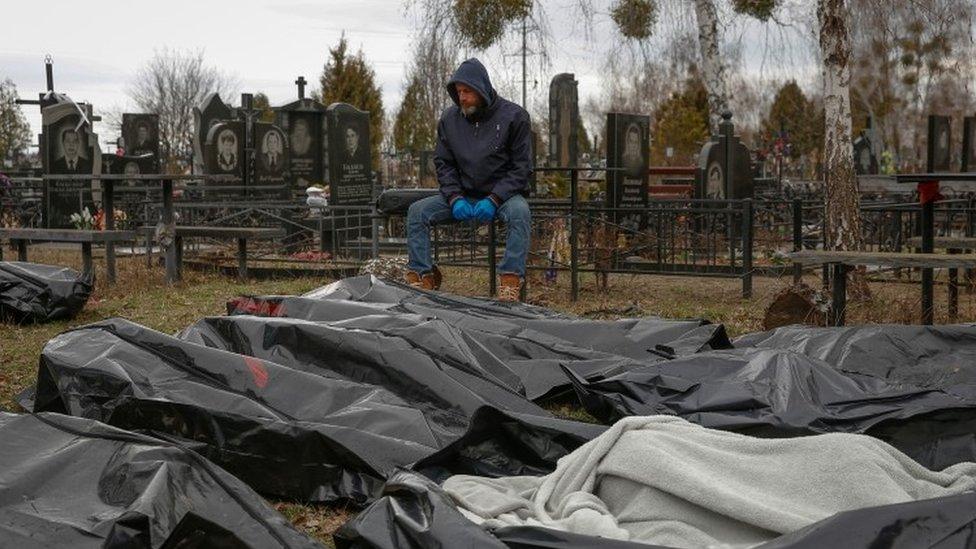
A funeral service employee sits next to bodies of civilians in Bucha
The Bucha killings have sparked widespread accusations of war crimes - with some voices arguing that Moscow has gone even further.
"That is real genocide, what you have seen here," Ukrainian President Volodymyr Zelensky said during a visit to Bucha.
Poland's Prime Minister Mateusz Morawiecki agrees the killings in Bucha and other towns near the capital "must be called acts of genocide and be dealt with as such".
And UK Prime Minister Boris Johnson said attacks on civilians in Bucha do not "look far short of genocide".
But the US and the West's Nato military alliance have stopped short of using the word to describe what's happening in Ukraine.

Video appears to show killing of captive Russian soldier
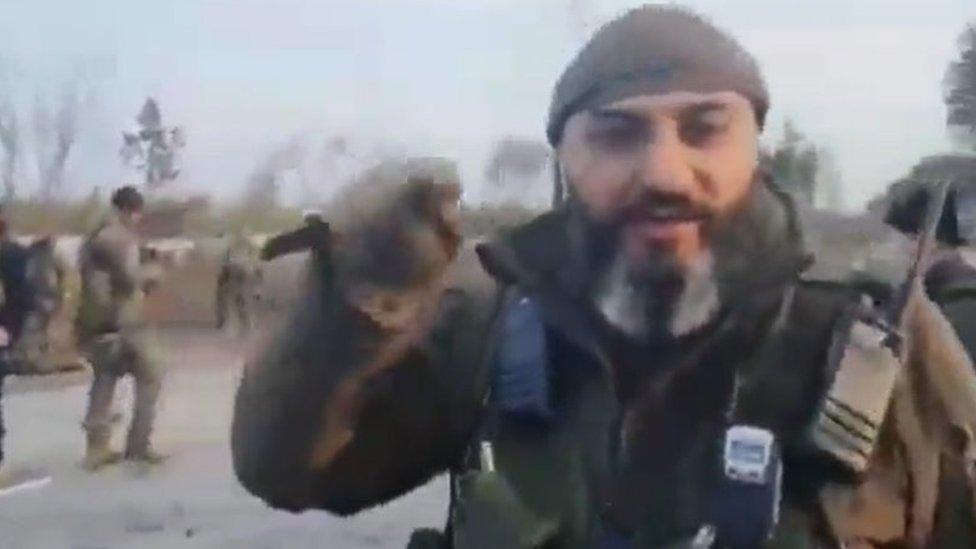
Footage has emerged which purports to show Ukrainian forces shooting and killing a captive Russian soldier.
It was filmed on a road to the west of the Ukrainian capital Kyiv, where Russian forces have been retreating.
Ukraine's Foreign Minister Dmytro Kuleba said on Thursday he was aware of the video and it would "definitely be investigated".
The BBC has been analysing the footage - here is what we have found out so far.

Jonathan Beale: Ukrainians prepare for eastern front
Russia's military offensive in eastern Ukraine is already intensifying. You can see it in the long queues of traffic driving west towards relative safety. You can feel it in the deserted streets as you drive through the towns and cities of the Donbas. And you can hear it with the increasing sound of Russian artillery.
Russia is redeploying more of its forces from northern to eastern Ukraine. The objective is to step up the battle in the Luhansk and Donetsk - parts of which were already controlled by Russian backed separatists.
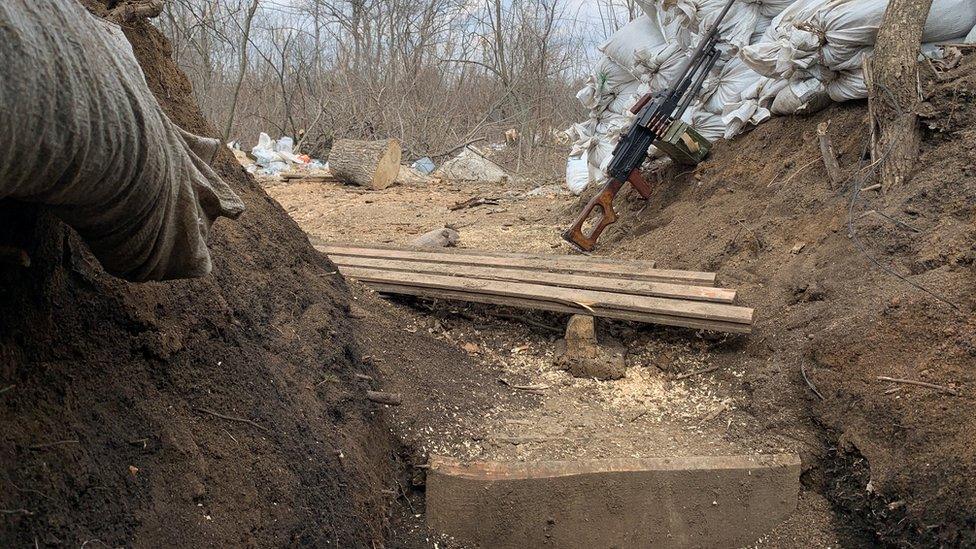
A maze of trenches makes the front line feel like something from the First World War
Ukraine has already lost ground to Russia. But they are digging in for the fight. As we travelled east towards the frontline we saw new defensive positions and trenches being dug.

Nobel laureate daubed in red paint
Russia's Nobel Peace Prize winning journalist Dmitry Muratov says he has been attacked with red paint laced with the solvent acetone aboard a train.
"My eyes are burning terribly," said the editor of the Novaya Gazeta liberal newspaper, which has halted its operations after warning from Moscow over its Russia-Ukraine war coverage.
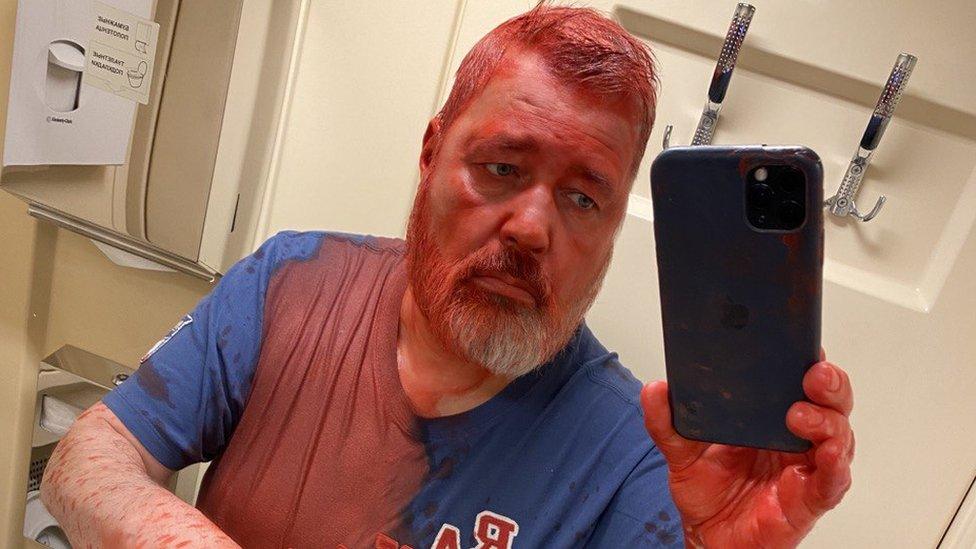
Dmitry Muratov says he was attacked on a train that was due to depart Moscow to the city of Samara
The male attacker shouted, "Muratov, this is for our boys," he said.
Novaya Gazeta is known for being highly critical of the Russian authorities.
Last month, it announced it was suspending its print and online operation until the end of the war.

War in Ukraine: More coverage
FRONTLINE: 'Russian soldiers held us as human shields'
PROPAGANDA: Russians hear one voice on war - that of Putin
READ MORE: Full coverage of the crisis, external

Related topics
- Published4 April 2022
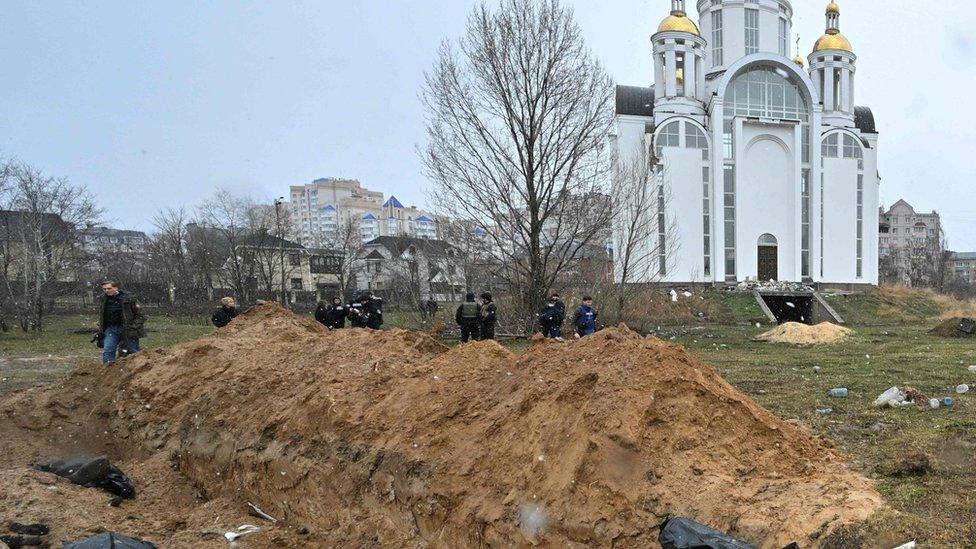
- Published4 April 2022
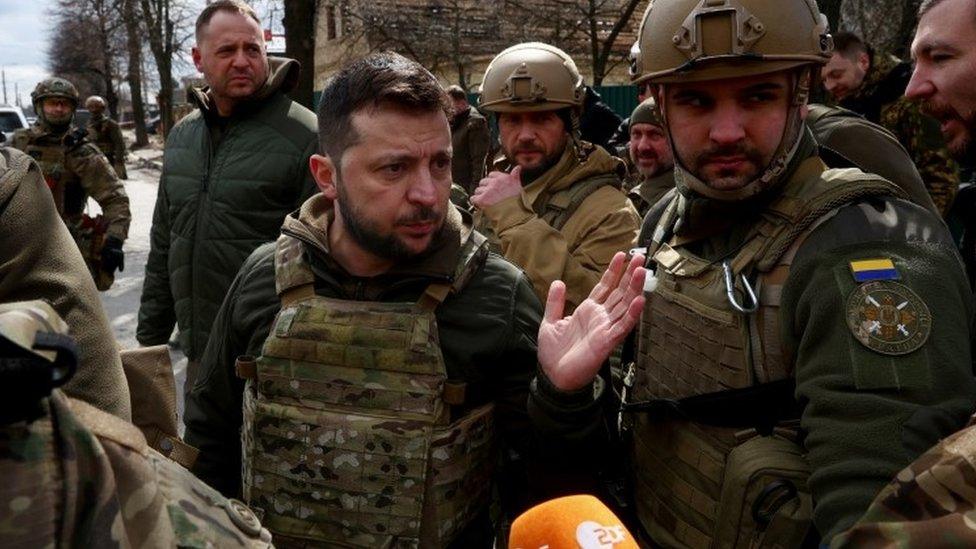
- Published20 July 2023
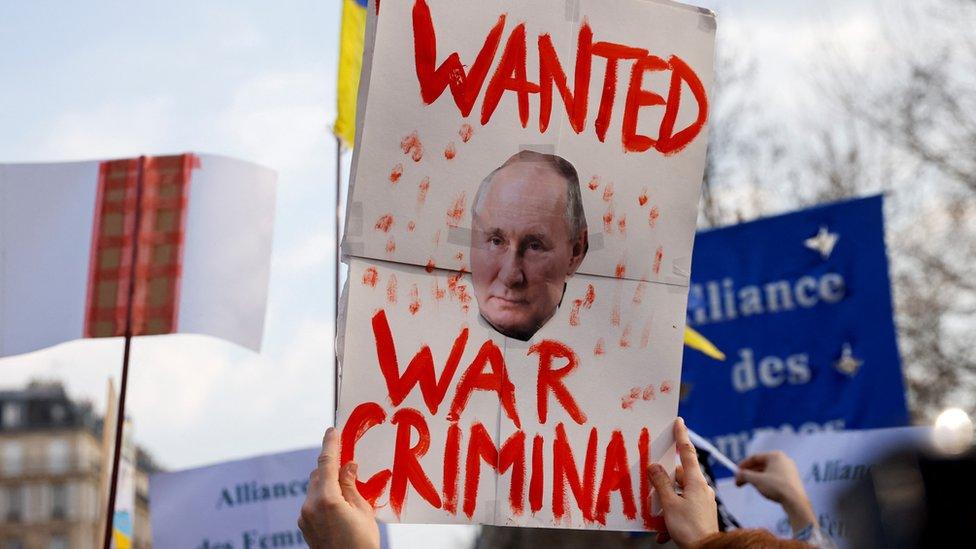
- Published4 April 2022
